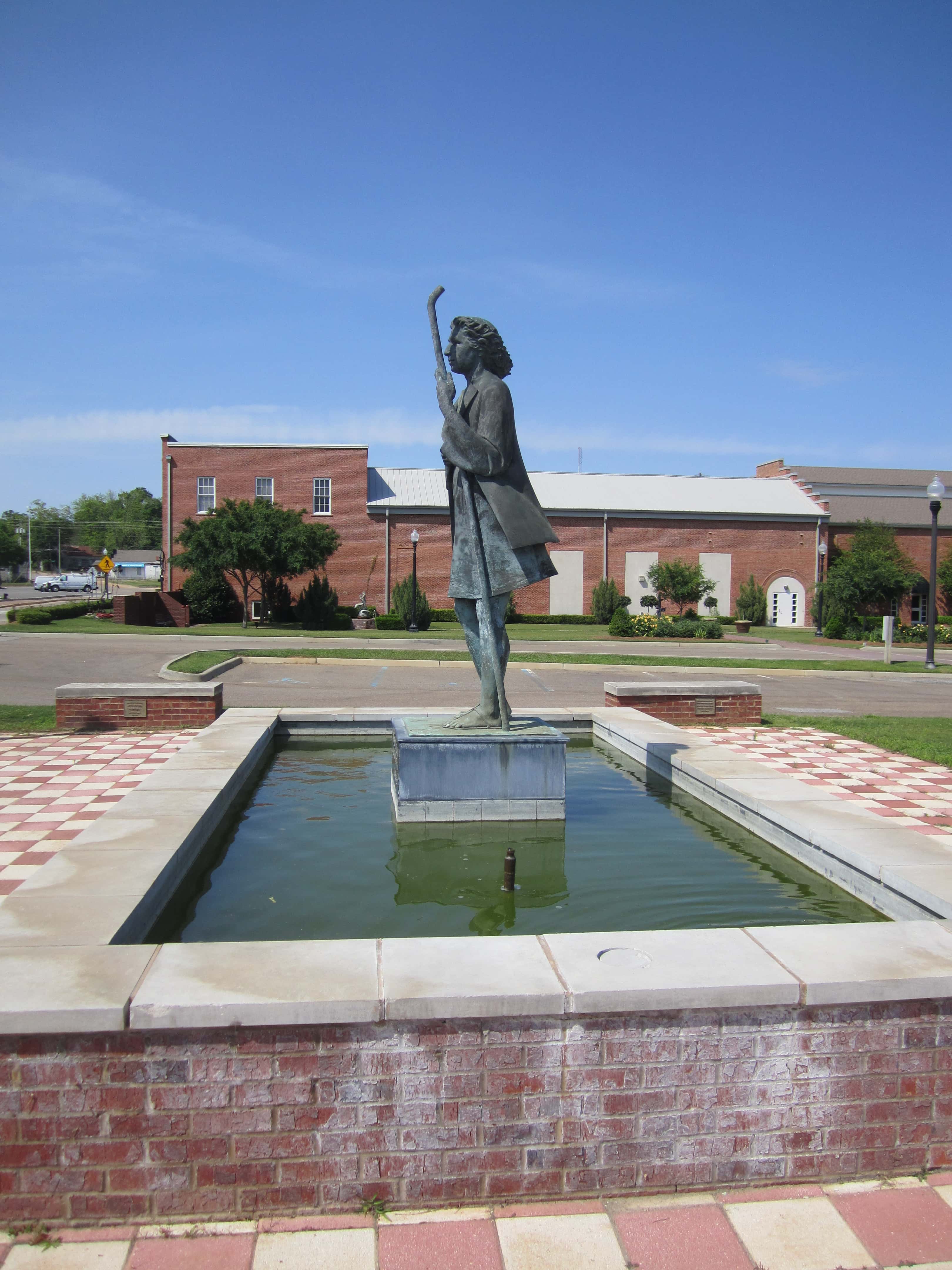Rough Seas
The seas looked really calm. The Captain, Captain Duke, told us that looks could be deceiving. He went on to tell us that almost all the other fishing charters had been cancelled. All we saw was sunshine and clear sailing.
The captain went on to tell us he would do whatever we wanted. He said if we did go out, it would probably be very smooth sailing until we got about two miles out. That was the way these storms worked. I was definitely not an expert on these measures, so I left the decision up to my crewmates.
We decided to head out, at least a little bit, just to see if we could catch some fish. It was very smooth sailing. One of our group came up to me and said, “Oh, I don’t think it is going to be that bad. Let’s just go for it.” The others agreed, and off we went over the horizon. We had been sailing for quite a while and we didn’t encounter any problems.
I’m not a boating expert by any means, and I know I would never qualify to be a captain of even the SS Minnow (for those of you who remember the Gilligan’s Island TV show), but I’m guessing it was about two miles out when we started hitting the rough seas.
The further we went, the rougher it got. The Captain finally had us at some watch towers that were out in the middle of nowhere. How he kept us from crashing into them I will never know. At times it felt like the boat was on a forty-five degree angle with the sea because of the rough waves.
Soon we had a fish, a huge fish. They gave me the rod to reel it in. It was a monster fish and I really struggled to bring it in. The boat was rocking like crazy. The bobbing up and down, and reeling in the fish started to make me nauseous.
I knew, when I finally got the fish in, my fishing day was over. The view over the side of the boat was my residence until I had nothing left in my stomach to contribute to the cause. Then I just sat in a chair hoping it would all be over soon.
We caught two more huge fish and we decided to head back in. The rest of the group was huddled up inside the cabin. I didn’t move from the chair I was in out in the back of the boat. The waves crashed over the boat and splashed against the back of my head. The boat bobbed up and down. It got to the point where I became an expert on when we were going to hit the next big wave. The Captain would lay off the throttle.
One of our group came out to check on me and he tried to talk me into coming into the cabin with the rest of them. I refused and I told him, “The way I’m feeling at this moment, I really don’t care if I fall into the sea and become shark bait.”
As we got closer to shore I finally decided to go into the cabin with the rest of them. The seas weren’t as bad, but they were still pretty rough. I was laying on one of the benches, inside the cabin, hoping real hard I would just fall asleep so I would stop feeling seasick. We hit another big wave and I went flying to the floor. I didn’t move. I just laid there on the floor until we got back to the dock. My sickness didn’t keep me from being the first one off the boat when we got to the dock, though.
As we stood on the dock, the Captain threw our huge fish on the dock so we could get a group picture. A crowd had gathered and seemed amazed by the size of the fish. The Captain turned to us and said, “It looks like you all are the stars of the show today.” Strange thing, I sure didn’t feel like a star.
One of the strangest topics that came up in the last Presidential elections was building a wall across our southern border. I got thinking about it for a minute, has there ever been a time in history when a wall was being built by a country to keep people out? Most of the walls I could think of were built either for protection (keeping the citizens safe from invading armies) or to keep people in (or from leaving a nation).
Despite all our bickering, we have a really great country. A wall to keep people out, not to keep them in, is a real sign of how much others want to get into this land of opportunity. Still, despite our best efforts, there are people who get across our borders the tricky way.
On the flip side of that coin is the side that wants to leave a country so bad, they will do almost anything for a better life. Can you imagine living somewhere where you can’t wait until someone turns their back on you or closes their eyes so you can run as hard as you can to get away from them so you can rush to the other side and find that long sought after freedom and opportunity?
Such was the case for the Marielitos. They could not stand being in their own land any longer. They decided to rush the Peruvian Embassy. Hector Sanyustiz and five of his friends drove a city bus through the gates and into the grounds of that Embassy. They would seek political asylum. It wasn’t long before 10,000 of their countrymen would follow them through the gate and seek political asylum, too.
Other countries stepped in to help, but the number of exiles kept growing. Soon the country just advised the American ships to pick up as many exiles as they wanted in the port city of Mariel. That’s why the exiles were called Marielitos.
Eventually there were around 125,000 Marielitos in the United States. Now the United States had a huge problem. What were they going to do with all these exiles? Southern Florida was growing tired of being responsible for all of them.
The Federal government soon agreed that this was more than just a problem for Southern Florida. The government worked real hard to find family and friends who would take in as many refugees as they could. That effort was only a drop in the bucket. What could they do with the other refugees?
The father was called outside by the brothers who had been through a long day’s work. The sober look on their faces caused the father to wonder what was going on. As the father moved closer to the group, the brothers parted like a divided sea. The father slowly walked down the opening. His steps were slow and every other step he paused to look at the brothers.
There in the middle of all the brothers was a huge rock. There was a ragged piece of cloth laying on it. Wondering what was going on, the father moved over to take a closer look. “Wait, there is something familiar about it,” he thought. He bent down to take a closer look.
Some of the brothers were talking among themselves. The father hardly noticed their conversation. As the father took a harder look at the cloth, the brothers seemed to look at each other like they were expecting some response.
Then, like a lightning bolt, a look of shock covered the father’s face. He turned quickly to look at all his sons. Then he turned and did a head count. “Wait, one is missing. Let me count them again,” was the thought that went round and round in his head. It was a large group because he had a big family.
“Who’s missing?” he thought. “There’s Ben. Good he’s safe. Rudy, Sye, Lee, Jude, Issy, Zeb, Dan, Nap, Gad, and Ash,” his mental role call continued. Then their father turned as white as a sheet. He had a look of terror in his eyes that all the sons would never forget.
The father then collapsed to the ground and threw his body over the ripped garment. It didn’t seem to bother him that the blood on the garment hadn’t had time to dry. The sons tried to lift the father off the garment. He refused. He seem to lay there for eternity.
When the father finally lifted his head off the garment, the sons could see the flood of tears that covered his face. One of the sons slowly turned to the father and said, “Dad, we tried.” The father just pushed him away. “It was a wild animal, and …” another son continued until the father just pushed him away, too. In the shock of the whole situation, he just he didn’t want to hear all the details. With his head bowed low, and his spirits even lower, he just walked back into the house. The speechless brothers could do nothing but stand there. Their father’s heart was so broken and they understood they each played a part in the dilemma.
Then another rumor circulated: the country who let the refugees go was also emptying their jails and mental wards and mixing those citizens in with the other refugees. It sent a panic through the process. Much later it was determined that only fifty-five, from the initial group, actually had criminal records. But as a total, it is estimated that of the roughly 125,000 refugees, 1,200 could have had serious criminal records and about 600 had mental issues.
Between May 9 and May 18, the government decided they would transport over 19,000 of the refugees to Fort Chaffee. The citizens in that state were very upset about the transfer.
Because these refugees were not prisoners of war, the soldiers guarding them were told that violence or threats of violence in order to keep them on government property would not be tolerated. The refugees soon realized this and a few days after they arrived, twenty-one refugees just walked off the base into the town. Now the citizens were really up in arms.
Then thirty more refugees attempted to leave. The next week 350 more refugees went through the unguarded gates. The Governor, hearing the cry of his citizens, ordered the National Guard to assist local, county, and state police to prevent the refugees from leaving the base.
Soon guards and police faced 1,000 Marielitos heading out the gate. The refugees turned back, but they were very upset that their freedom march was blocked. Then between 2,000 and 3,000 refugees staged a riot. Four building were set on fire and sixty-two injuries (including five guards) were reported. The Governor gave the White House official in charge of the whole refugee problem a tour. The official got back to the President, Jimmy Carter, and new, stronger security measures were instituted.
These new measures seemed to slow the process of freedom for these refugees. They would stage hunger strikes and an occasional riot would flare up. It was estimated that the Federal government was spending one million dollars a day at Fort Chaffee. The state also sent a bill to the Federal government for $213,850 for their expenses.
As Bill Clinton’s first term, as Governor of Arkansas, came to a close, he decided to run for reelection. He was soundly defeated. The two biggest reasons given for his defeat were the raising of taxes during his term and his handling of the Cuban Refugee Crisis at Fort Chaffee.
Eventually the group of brothers broke up and went back home. The ragged, ripped coat of many colors, that was once worn by their brother, Joseph, was left there on the ground. Each had the memory of how their brother would always show it off to them. The flame of envy consumed their soul. Their father would be forever heartbroken and they each realized they contributed to their father’s sorrow. Why didn’t justice feel better?
Most people who read the story of Joseph being sold into slavery by his brothers, seem to gravitate toward the evil his brothers did him. Some look at the story and see the deception of the brothers, who tore Joseph’s colorful coat and then killed an animal and spread its blood over the coat to make it look like he was killed by that animal. But what about the blood stained coat?
The colorful coat seems to have gotten lost in the story. Where did it go? Why is it that the magic coat never really gets mentioned again?
I have a theory. The coat represented evil. It represented the taunting and pride that identified Joseph’s life. Joseph couldn’t have been easy to live with. Joseph almost encouraged his brothers to dislike him. The person who wore the coat had evil qualities in his life.
But, before we let the brothers off the hook, the brothers weren’t all that pleasant either. To come up with a plot that is so evil, that you have to kill someone, or make it look like someone was killed, speaks volumes of their character. Their lives, too, were filled with evil.
Now, before we stand over the story and cast our judgment, we have to look in the mirror. Our lives are also castles in which evil resides. We could be wearing that colorful jacket and boasting of our self-importance or we could be the one ripping it up with our holier-than-thou attitude.
So there on the ground lays the ripped, colorful coat. But wait, there’s blood on it. Maybe the reason we don’t see or hear about the coat again is that the blood took care of it. Just like Jesus’ blood took care of our evil and our sins. They are no longer there to be thought of.
Evil is like that wicked storm the poor, seasick fisherman rides in. It’s his own fault that he’s there. The evil is making him sick. Will there ever been a peaceful shore to walk on again? The Man whose blood stained the garment is on the shore waiting for him.
Evil is like the refugee crisis Bill Clinton faced in Arkansas. It came into his life. It consumed him. It put him in the spotlight. He loved the spotlight. Then it destroyed his chances of being reelected Governor. But evil, when confronted by Jesus, seems to be no match for His forgiveness. Just like Bill Clinton being elected in the next Governor’s election, after he lost his reelection bid, our lives can find renewed hope through forgiveness.
Prayer: Dear Mighty Father, Thank you for the sacrifice of Your Son’s blood that forgives my sins. Please always help me in those moments where evil has come into my life and direct me back to Your forgiveness. Amen.



